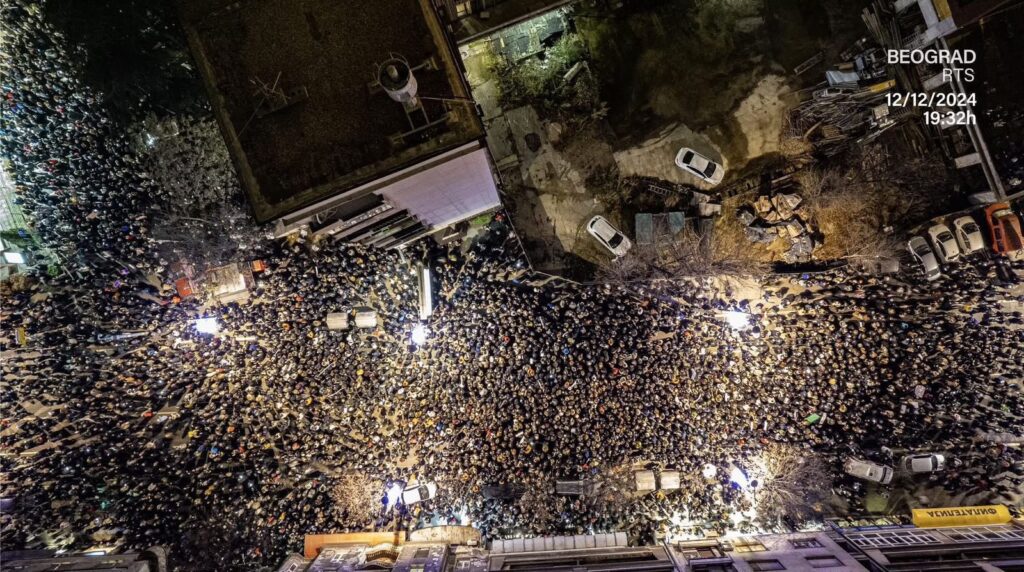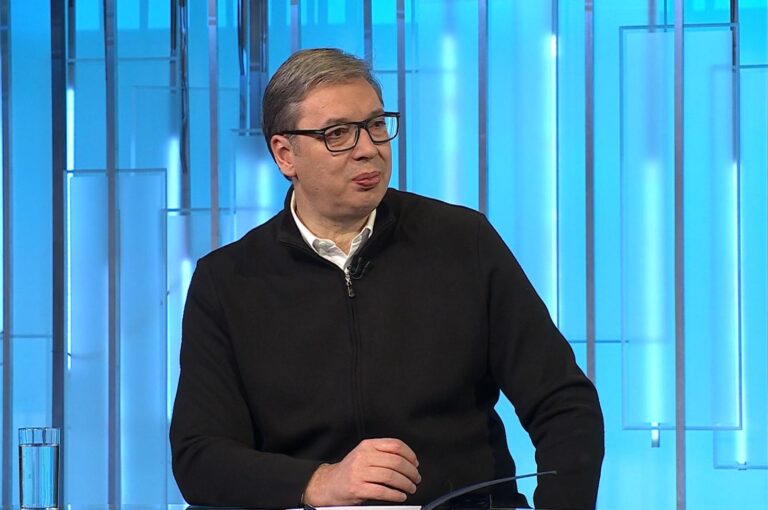Following recent events in Belgrade, where student protests erupted to oppose government corruption, nepotism, and other grievances, Serbian President Aleksandar Vucic made a notable announcement via Instagram. He invited the opposition to request an advisory referendum to assess public support for his presidency. Citing a survey by the non-governmental organization CRTA, which indicated that over 50% of citizens were against him, Vucic dismissed the findings as foreign influence. In his message, he stated, “Because the CIA and others claim I lack public support, if this data is correct, then it makes no sense for me to remain President.” Vucic then urged opposition parties to gather the necessary parliamentary signatures to initiate the referendum. Similarly, Milenko Jovanov, head of the Serbian Progressive Party’s parliamentary group, and Ana Brnabic, Speaker of the Serbian Assembly, echoed this call.

More on this story: The Cost of Corruption: Protests in Serbia and the Push for Change”
The past two months have revealed widespread dissatisfaction with governance in Serbia. The collapse of the Novi Sad train station roof, which resulted in 15 deaths, served as the tipping point. Allegations suggest that the renovation contract with a Chinese company was either mismanaged or entirely unsupervised. This incident sparked protests across Serbia, with recent figures showing over 100,000 participants, many of whom are students from 60 faculties. While authorities in Belgrade have downplayed the protests, offering much smaller participation estimates, Vucic recognizes the power of student-led movements, which have historically instigated political change across the region. In response, the ruling party has begun attempting to manipulate the protests and proposing a referendum to reaffirm Vucic’s political authority.
The opposition in Belgrade, however, refused to take Vucic’s bait. Within 24 hours, they rejected his referendum proposal and instead called for a transitional government to navigate the crisis. With international support, such a government would establish conditions for free and fair elections—a prospect Vucic swiftly dismissed. Meanwhile, attempts to infiltrate and discredit the protests have been reported. Infiltrators carrying nationalist slogans and symbols, such as the Nazi-inspired “No Surrender” slogan from the Battle of Stalingrad or flags depicting Kosovo as part of Serbia, were seen among demonstrators. Despite the failure of the initial referendum proposal, it is unlikely that Vucic will abandon his efforts to consolidate power.
It seems probable that Vucic will now turn to constitutional reforms to secure his position, following a playbook similar to that of Vladimir Putin in 2020. Putin’s constitutional changes allowed him to extend his presidency beyond 2024, with amendments permitting his re-election until 2036. These changes also included symbolic measures, such as affirming Russia’s status as the Soviet Union’s successor, emphasizing Russians’ faith in God, defending the Soviet Union’s role in World War II, and defining marriage as a union between a man and a woman. The Kremlin leveraged state-controlled media to highlight provisions that ostensibly increased state support for citizens, thereby masking the primary intent of consolidating Putin’s power.In Serbia, Vucic is likely to frame any proposed constitutional changes as “patriotic reforms” aimed at strengthening the nation. Nationalism has been Vucic’s most potent political tool since coming to power, and he is expected to exploit the current protests to further his agenda. By infusing nationalist elements into the narrative, Vucic could divert public attention away from the original causes of the protests—government corruption, nepotism, and mismanagement—and refocus it on patriotic rhetoric. Should another referendum occur, it would likely follow these constitutional changes and serve as a means to legitimize Vucic’s extended rule, solidifying his power for the foreseeable future.




